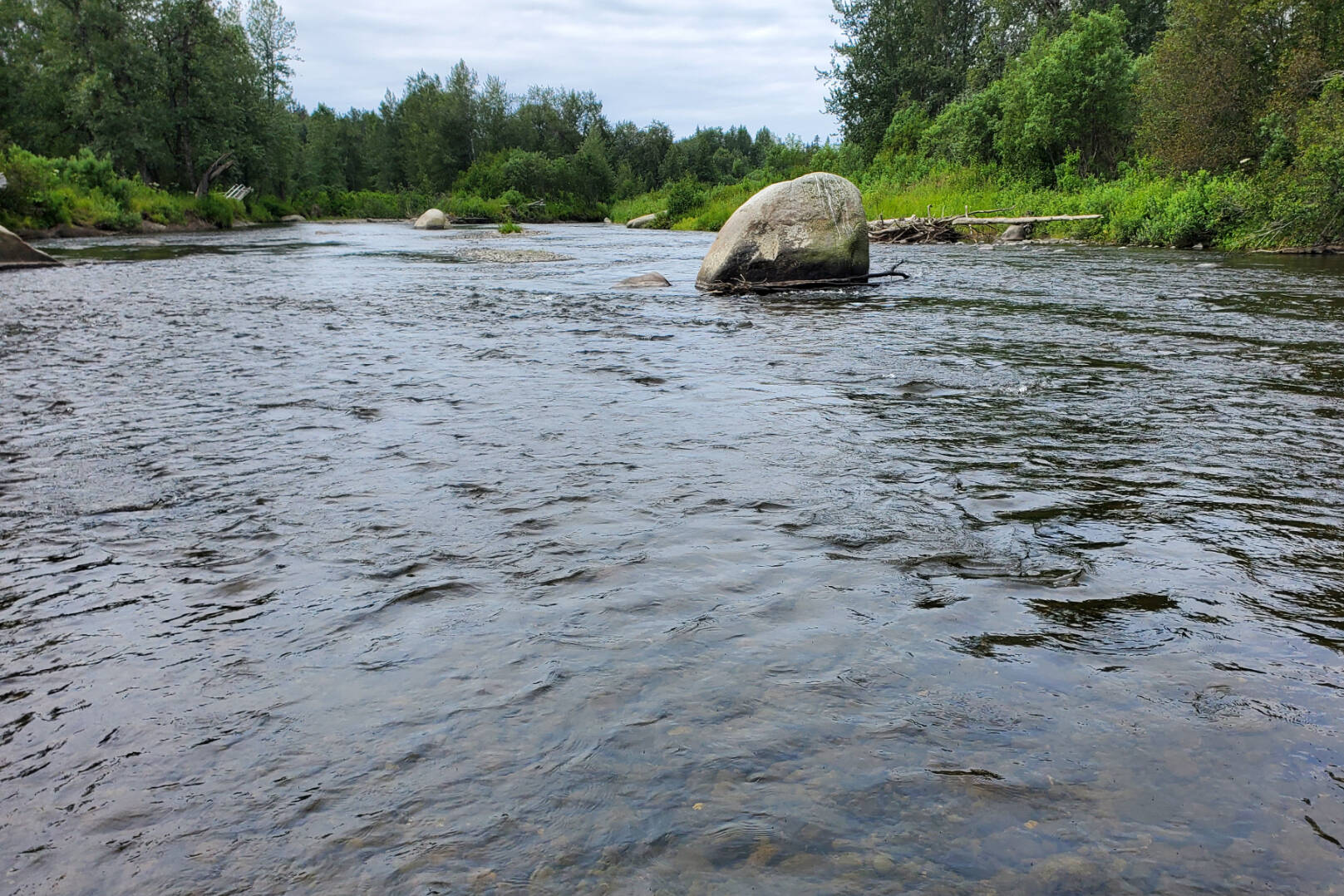Most of us in Alaska choose to live here because of the lifestyle this wonderful land affords us. We hunt, fish and recreate in a landscape most can only dream about, with clean water and healthy forests, wetlands and tundra.
Yet, we are also witnessing the distressing demise of many salmon populations throughout the Pacific Northwest, and even here in Alaska where nearly all our chinook salmon populations and many coho salmon stocks are well below historic abundance, and no longer support once thriving commercial, sport or subsistence fishing opportunity.
At these critical times for salmon, we should be doing all we can to help them, not make it harder for their survival. That is why it is so discouraging to see the Department of Natural Resources seemingly on track to erode the public’s ability to protect vital water interests. This comes in the form of altering current regulations that allow the public to secure a water right known as an “instream flow reservation.”
Alaska’s Constitution declares water a public resource, belonging to the people of the state to be managed for the maximum benefit to the public. Our state’s founders had the foresight to recognize that maintaining enough water in rivers, streams and lakes was important for fish, wildlife, recreation, transportation, and much more. In early statehood, we set up laws and regulations that allow the public and agencies to secure a water right to keep water in a river for broad beneficial public use.
A water reservation is simply a certificate for maintaining a certain amount of water flow in a section of river or water level in a lake, usually to support fish and wildlife. Sometimes other uses, like navigation or municipal water supply are also listed as purposes.
Currently instream flow reservations are open to groups, individuals, agencies, municipalities, but they are not easy to obtain. An application is intensive and expensive and is often tied up in bureaucratic red tape for years. In contrast, applications granting a water right or temporary water use permit, taking water out of a stream, need to provide minimal information and require no data to demonstrate that the water withdrawal requested will not harm other existing uses.
Astoundingly, there currently are no requirements at all to retain sufficient water in our lakes and streams for salmon when a private company wants to appropriate that water for industrial or other uses. The only way currently to ensure salmon have sufficient water in a stream or lake is to secure a reservation of water certificate. So, it would seem to follow, both via common sense and constitutionally that we would encourage state laws and regulations that support the reservation of water and the overwhelmingly positive benefits they hold for Alaskans, not weaken them.
However, the DNR is currently seeking input on potential changes that would degrade the effectiveness of this important program. If anything, changes should encourage the ability of the public to apply for, and streamline the process to obtain, and hold a certificate for reservation of water. Or even better, as well as more cost-effective and efficient, the DNR could update the regulations to implement a system that reserves a baseline amount of water necessary for fish, wildlife and common public uses by the people of Alaska. This would be consistent with the requirements of Article VIII of the Alaska Constitution.
Unfortunately, it is clear that the current administration wants to do away with this program and undermine the essential service of keeping water in our rivers for fish and wildlife, for fishing and tourism industries, as well as for recreating and the numerous other ways Alaskans use our rivers.
We Alaskans enjoy fishing, hunting and recreating in our time off, many of us earn our living from our rivers, lakes and streams. We hope that our children and future generations will also be able to share in this amazing lifestyle, which relies on healthy rivers, unaltered streamflow, and the fish and wildlife that depend upon them.
While the challenges facing our fisheries can be overwhelming, here is one thing Alaskans can do right now to help salmon, not hurt them. There is a comment period with DNR open through 5 p.m. on Oct. 29.
Rather than take away an important constitutional guarantee, DNR needs to update its water management regulations to truly serve the public good. We need transparency in this process, where someone seeking an instream flow reservation (the public) has the same rights as an entity asking to withdrawal or impound our waters.
Alaska small business owners, sport and commercial fishing interests, and subsistence users, should have the same rights, should be at least as important, as say, an out-of-state mining company that wants to impound our water.
Having the ability to file an instream flow reservation is a key to maintaining a public voice in how our natural resources are managed, as well as providing important checks and balances with regard to all-out government control.
Please comment on these important changes proposed by DNR and ask them to implement a system that improves the rights of Alaskans to use, enjoy and care for the rivers, streams and lakes we all depend on by improving the water reservation program, not weakening it.
Dave Atcheson is special projects assistant for Trout Unlimited Alaska. He is also the author of several books, including “Hidden Alaska”, “Dead Reckoning”, and Canoeing Yaghanen. For more info: www.daveatcheson.com.

